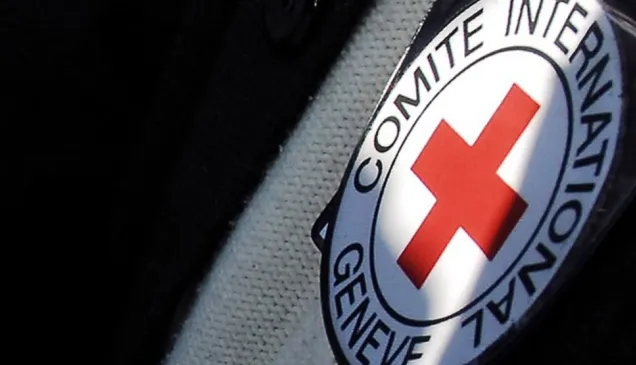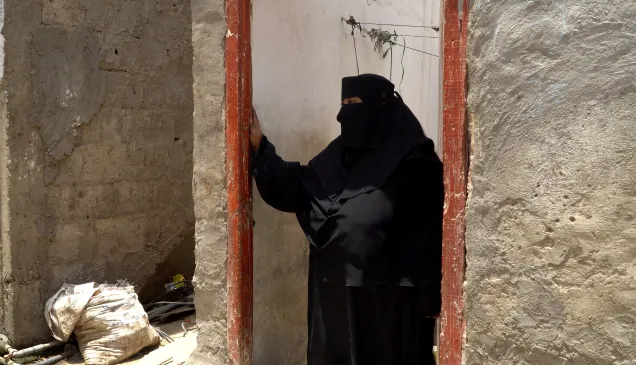Afia and her husband wait for their modest meal to cook while their granddaughter sleeps on a piece of cardboard in the yard of a school in Marawah, where they sought refuge from the clashes in Hodeida city. The couple are plagued by the thoughts of their four missing children who fled the coastal city around the same time. They find solace in taking care of their granddaughter.
Displaced people in Yemen, where the needs continue to grow
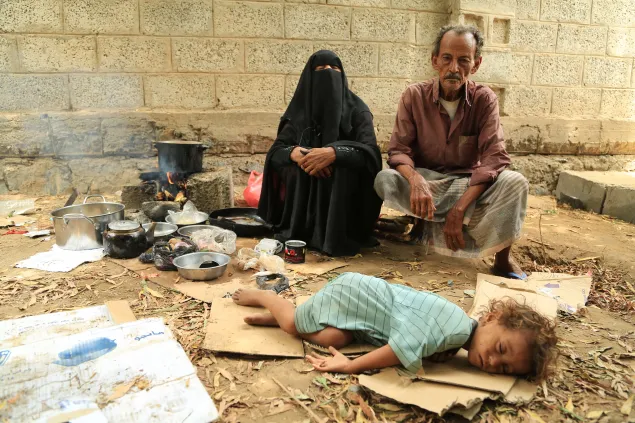
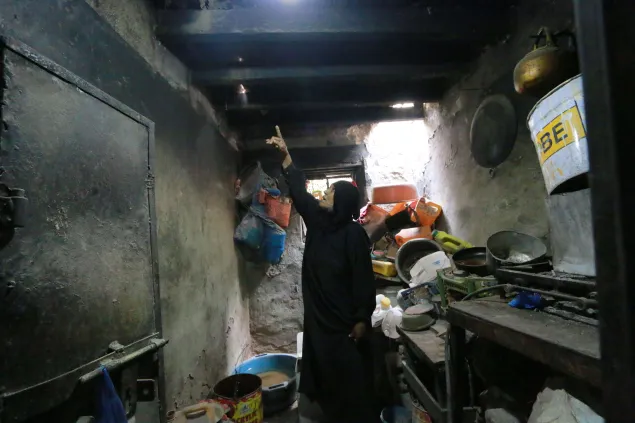
Less than a month after they fled their home, in Taiz’ Sallah, to Mudhafar, the small one-bedroom apartment the Omari family had rented was shelled. The family lost everything and its breadwinner was severely injured. After her son and his family moved out, Fatima al-Omari and her bedridden husband stayed in the burned down house, surviving on a meagre seven loaves of bread provided by a charitable bakery. “I feel helpless, I don’t know what to do. May God have mercy on us,” the 60-year-old woman says.
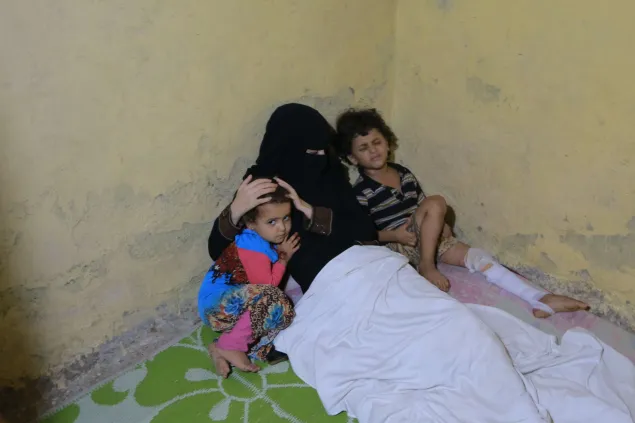
Amal and her family’s lives were turned upside down when fighting near their village Shaqab destroyed their home. When fleeing, a sniper’s bullet hit her neck. The following two hours, until she was able to reach a hospital, were the most painful of her life. The trauma did not end there – at the hospital she was told she would never be able to walk again.
She currently spends her days lying on the floor of a tiny rented room with her son and daughter. “The worst thing is when my kids ask for something and I can’t give it to them because we have nothing,” she says.
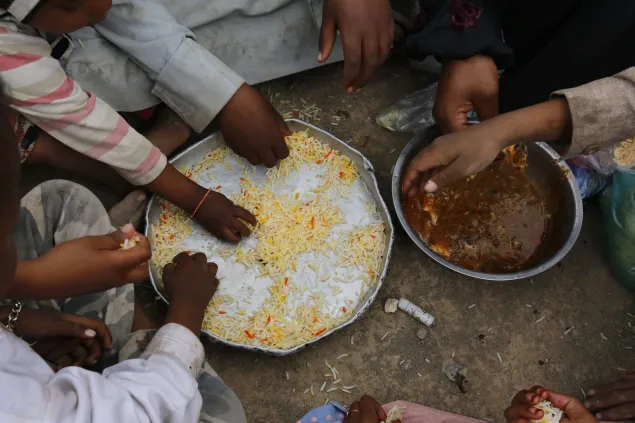
Arwa, 35, along with her sister and ten children eat lunch – their only meal for the day. A few years ago, their lives changed drastically when the entire family was forced to flee to Sana’a from Sa’ada, where they made their home among a makeshift settlement of other displaced people.
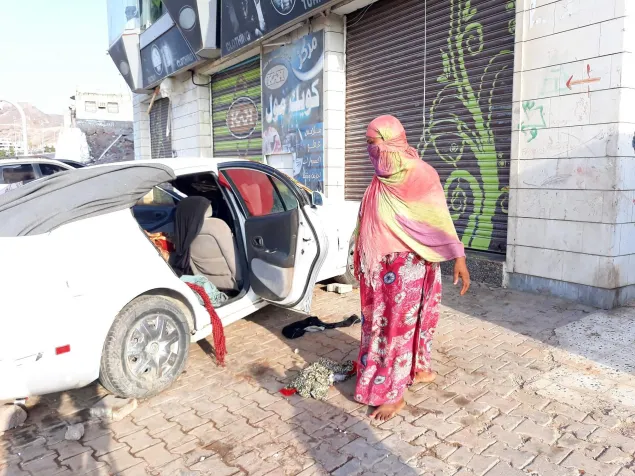
Om Khaled stands beside her car that became the only shelter for her family and her after they escaped the violence in Hodeida to Aden. Along with her three children, she eats and sleeps in her car. Neighbours give them food and allow them to use their toilets from time to time. Otherwise, the kids and their mother are forced to use an abandoned plot of land nearby.
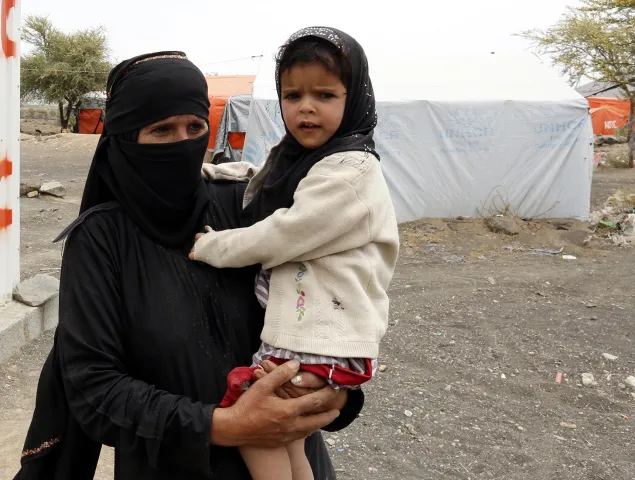
Khaizaran, 38, carries her youngest daughter Maram who was born in a settlement for the displaced in Darawan, on the outskirts of Sana’a. The three-year-old was born a few days after her family left their home in Hajja, when the clashes escalated in their hometown.
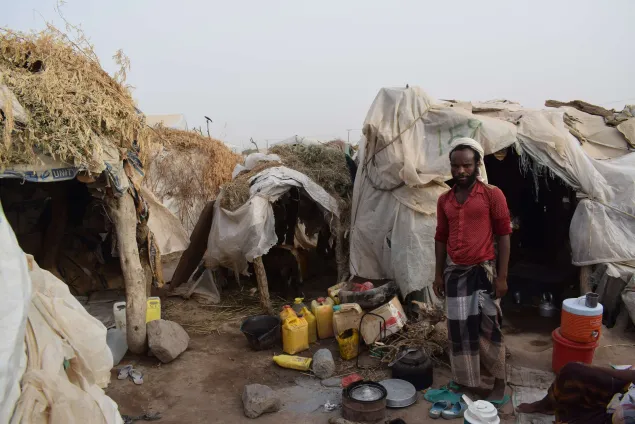
Ali stands next to his improvised tent in the settlement where he lives along with his family. They were forced to seek the relative safety of Aden when the hostilities in their hometown of Taiz escalated, with the fighting even reaching their neighbourhood.
One of the main causes of forced displacement in Yemen today remains the upsurge in violence.
The severe and sudden crises, faced by the displaced people on a daily basis, are brought about by attacks directed against civilians – sometimes indiscriminate in nature but always in violation of the international humanitarian law.
Yemen's vulnerable displaced people face severe insecurity with an overwhelming need for assistance. Of the almost two million people displaced from their homes in Yemen, most are living with host families or in rented accommodation, while others are in makeshift settlements. This leads to increased pressure on host families, who already face a number of vulnerabilities themselves.
During the first semester of 2018, the ICRC provided much needed relief aid to roughly 500,000 Yemenis. We were also able to help over two million people access clean water and better sanitation.


